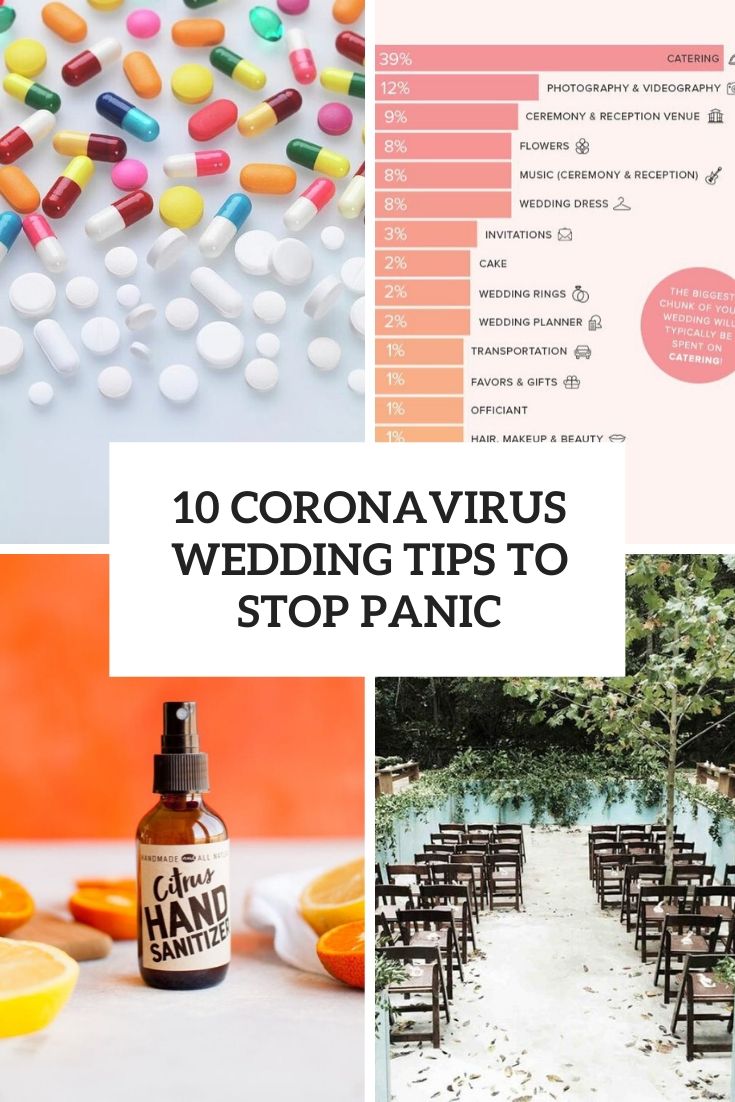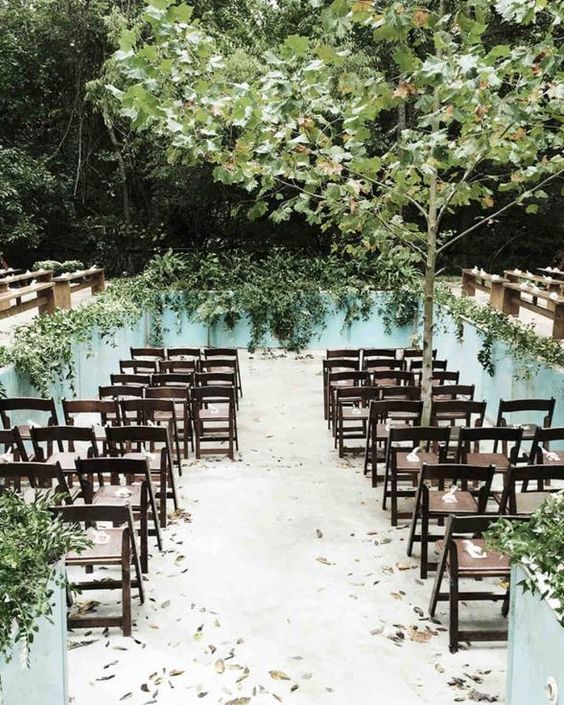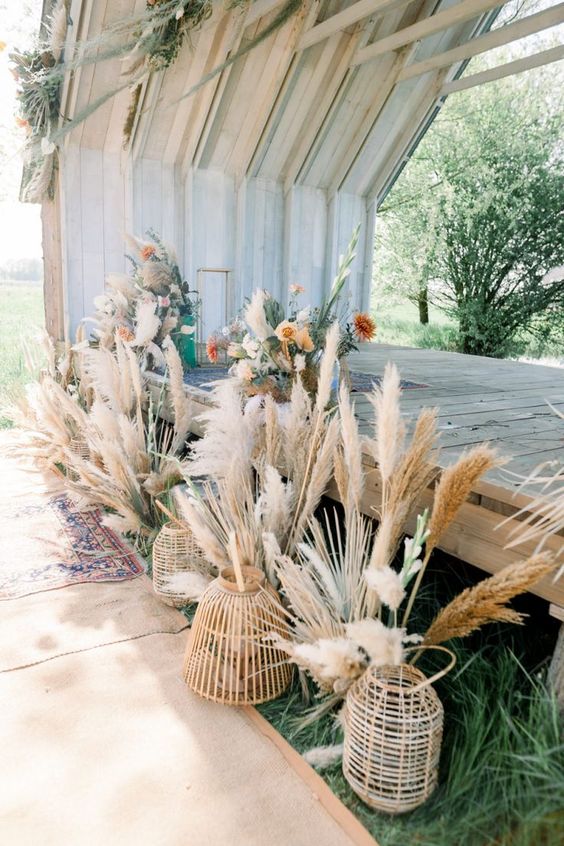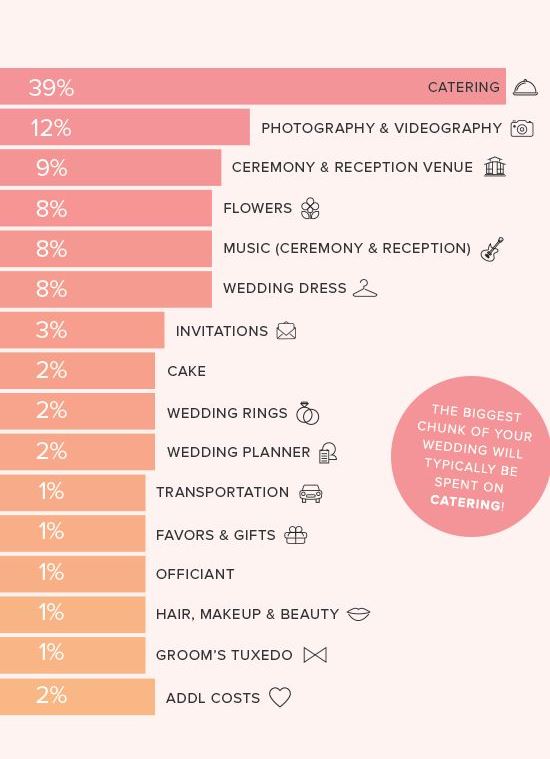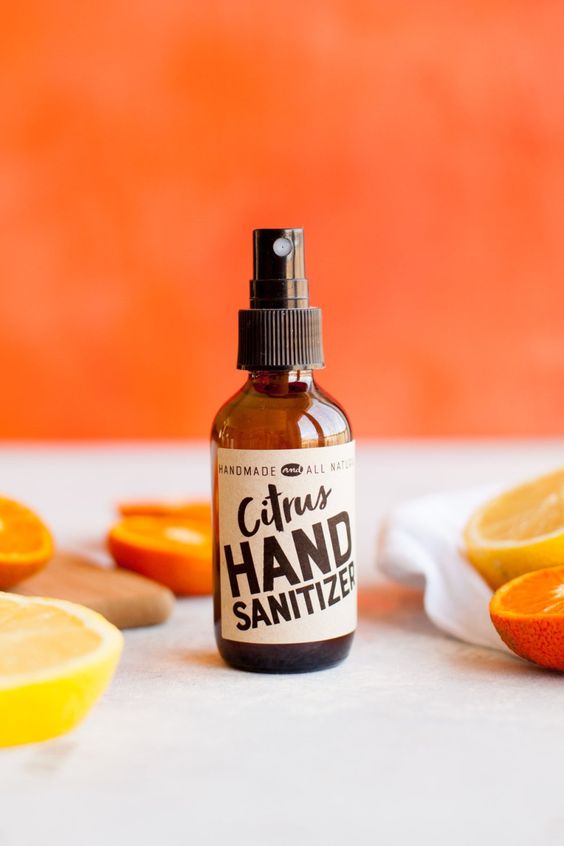We know that for those of you getting married in the next few weeks or maybe even months, you are currently consumed with coronavirus wedding concerns. How to have a wedding during this time? What are the best solutions and ideas? Let’s see.
Don’t Panic
Freaking out never helped a single person. If one member of your partnership is less prone to anxiety, let that person help guide the decision making process. Stress is a perfectly rational response to this situation.
Be Realistic About The Timeframe
The window for coronavirus wedding concerns is now through the end of May. Wedding professionals think that couples getting married in March and April should look the most closely look at their plans. If your wedding is March, April, or early May, reach out right away to your vendor team. Be mindful that they are being flooded with messages, and are more than likely working with their clients immediately affected by any cancellations. Keep things professional, ask for your options and any official policies they may have in place.
Think About Your Location
Be aware of public health guidelines and keeping elderly or otherwise at risk loved ones safe. If you’re in a location that currently has no public spread, you’ve probably bought yourself a little time. But keep in mind that things might look different in one or two weeks and make decisions appropriately.
Assess Your Risk Tolerance
If your wedding is this spring, you and your partner should be asking yourself whether this risk is worth it. The safest move might be to cancel your wedding all together and move it to another date. But if you’re the kind of couple that likes to roll the dice a little, you might decide to put off making that call.
Think About Possible Backup Plans
Can you carry on with your wedding mostly as planned, but know that you’ll have fewer guests in attendance? If you have a bunch of non-refundable deposits, can you try to get vendors to apply that smaller amount to a much smaller elopement type wedding on the same day? If you end up having a small wedding on the same day, do you want to plan a bigger wedding later or not? Or do you just need or want to cancel your wedding, and move forward in the fall / winter / next year?
Know What Your Deal Breakers Are
Now is a good time to sit down and figure out what your deal breakers are. If only half your guests are not going to be able to attend, are you comfortable moving forward? If your parents or grandparents can’t make it because it’s not safe to travel, will that be a game changer for you? Sit down with your partner now and come up with a list of deal breakers, and also trigger events where you would want to sit down and re-assess.
Communicate With Your Vendors
If a wedding is going to get moved, or a deposit is going to be forfeited, putting off that conversation isn’t going to change the outcome, and is only going to make the logistics (and emotions) worse. If you end of up moving forward with your date as scheduled, check if your caterer and venue can reduce your final payment based on a decreased guest count.
Understand Your Contracts
But keep in mind, most independent wedding vendors (think: photographers, florists, and wedding planners) are small business owners who depend on income from their weddings to eat and pay the bills. Many wedding vendors operate on razor thin margins and carefully managed cash flow. While some of them will be willing to roll your deposit forward to a future event, or try to refund you some of the money… some of them just can’t. That said, look carefully at your contract to understand what’s in in it, and start conversations from that point.
Communicate With Your Guests
Update your website with all the coronavirus wedding information you have and point everyone to that website. Set up a family member or friend who can be your point person, and talk to freaked out loved ones on your behalf.
Update your wedding site with all the information you have and ask your guests if they atten your wedding or not.
Be Mindful Of The Health
Put up friendly reminders at the wedding to keep people acting in safe ways. If you can get hand sanitizer during the great shortage of 2020, put it out where people will use it. Remind people that if they are even a little bit sick, they need to stay home. This isn’t just about their personal health, it’s about the fact that they might be a vector to spread disease to more vulnerable populations. And remember that guests aren’t the only people at your weddings—vendors are humans with their own health issues and risk tolerance as well. Be kind and take care of yourself and everyone you love!
